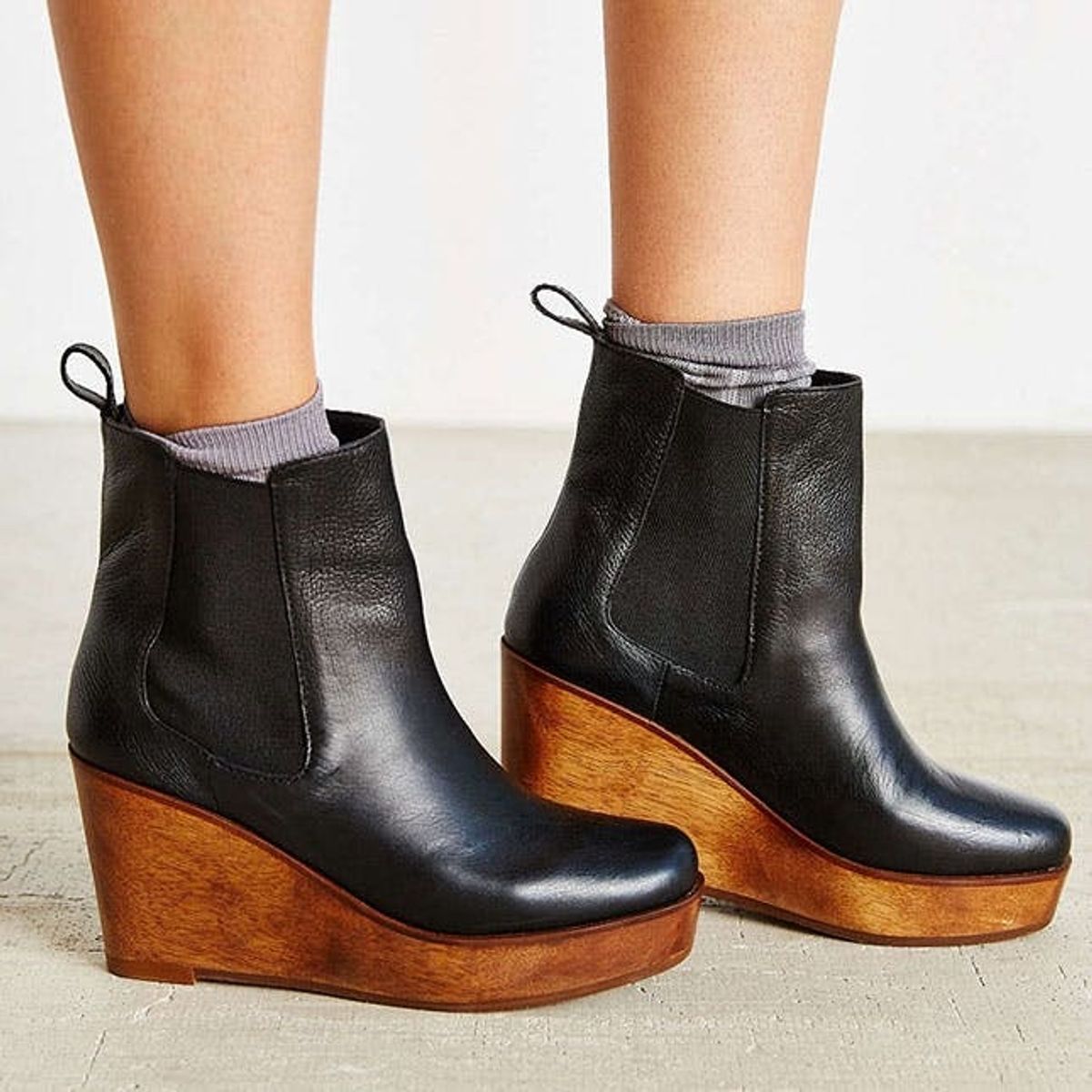3 “Ugly” Shoes You’ll Love to Hate (but Actually Wear) This Fall

Summer 2015 was officially the summer of the “ugly” sandal. Birkenstocks, Tevas and slide sandals were the fashion-girl styles of choice, turning what we once considered mom footwear and shower stall slip-ons into #OOTD-worthy steppers. This fall, three new “ugly” styles are taking their place, and just like you learned to love your Birks (you’re wearing them right now with cozy socks, aren’t you?), we bet you’ll curb your cringing at these perfect-for-fall shoes if you give ’em a chance. Below, we’ve listed the reasons why these unpretty steppers will soon steal your heart.
Why They’re “Ugly”: When their heels are on the higher, thinner side, mules can add an easy elegance to pretty much any outfit, not to mention help elongate your legs in the process (win-win). This fall’s version with a shorter, thicker heel is like a shoe makeunder, turning the once occasion-ready footwear into a more laid-back silhouette that might remind you a *little* too much of your grade school art teacher’s shoes of choice.
Why You’ll Love Them: These truly are shoes fit for lazy girls: slip ’em on and you’re out the door just like that (when they’re of the close-toed variety, there’s no pedi required). What’s more, these low gliders go with just about everything from your most casual weekend attire to your fave office culottes to a date night-worthy dress. Plus, now that they’re lower to the ground, they’re a lot easier to walk in.
Try: A chunky ’90s-meets-western vibe like Madewell’s Eller Mule ($168) or Shellys Blue Suede Heeled Mule Sandals ($113) for a more modern option (read: cutouts) that also hits the ’70s revival trend (one word: suede).
GLOVE SHOES
Why They’re “Ugly”: Sure, they kind of look like what would happen if a genie turned one of those blue shoe covers into a real life shoe. In reality, this slipper-like footwear is the definition of minimalist design, crafted with a flexible upper to accent the natural shape of your footsies — because of that, they’re 100% frill-free. To some, that means there’s nothing to swoon over, but to others (this editor included) the stripped-down design is just what your cropped flares called for.
Why You’ll Love Them: Simply put, they’re a one-shoe wonder. Because they’re so neutral, they can go with anything from any season, so long as the outfit you’re rocking prescribes to a similar less-is-more vibe.
Try: Rachel Comey Calder Shoes ($345) for a more ladylike take on the trend that will go with your favorite fancy jumpsuit and dress up your raw-edged jeans. For a wear-everywhere version, snag the OGs, Martiniano Glove Shoe ($398), especially if you’re in constant need of a bold pop of color.
WEDGE BOOTS
Why They’re “Ugly”: When platforms take over airy shoes like sandals or classic pumps, that’s one thing — they add grunge or glam to an otherwise delicate shoe. But a hulking wedge heel hoisting up an ankle-covering boot (or higher) is just a lot of look.
Why You’ll Love Them: Height without the heel ache? We’ll take it. Plus, when those oversized fall layers need a bit of balance. For that, these chunky pairs are your solemates.
Try: Kelsi Dagger Brooklyn Ubel Wood Wedge ($175) if you’re looking for a closed-toed clog alternative or if you’re looking for a slightly dressier version of combat boots, go for Forever 21 Faux Suede Wedge Booties ($28).
Are you keeping things ugly with your footwear this fall? Tell us about your fave fall shoes (whether your friends like ’em or not) in the comments below.

















